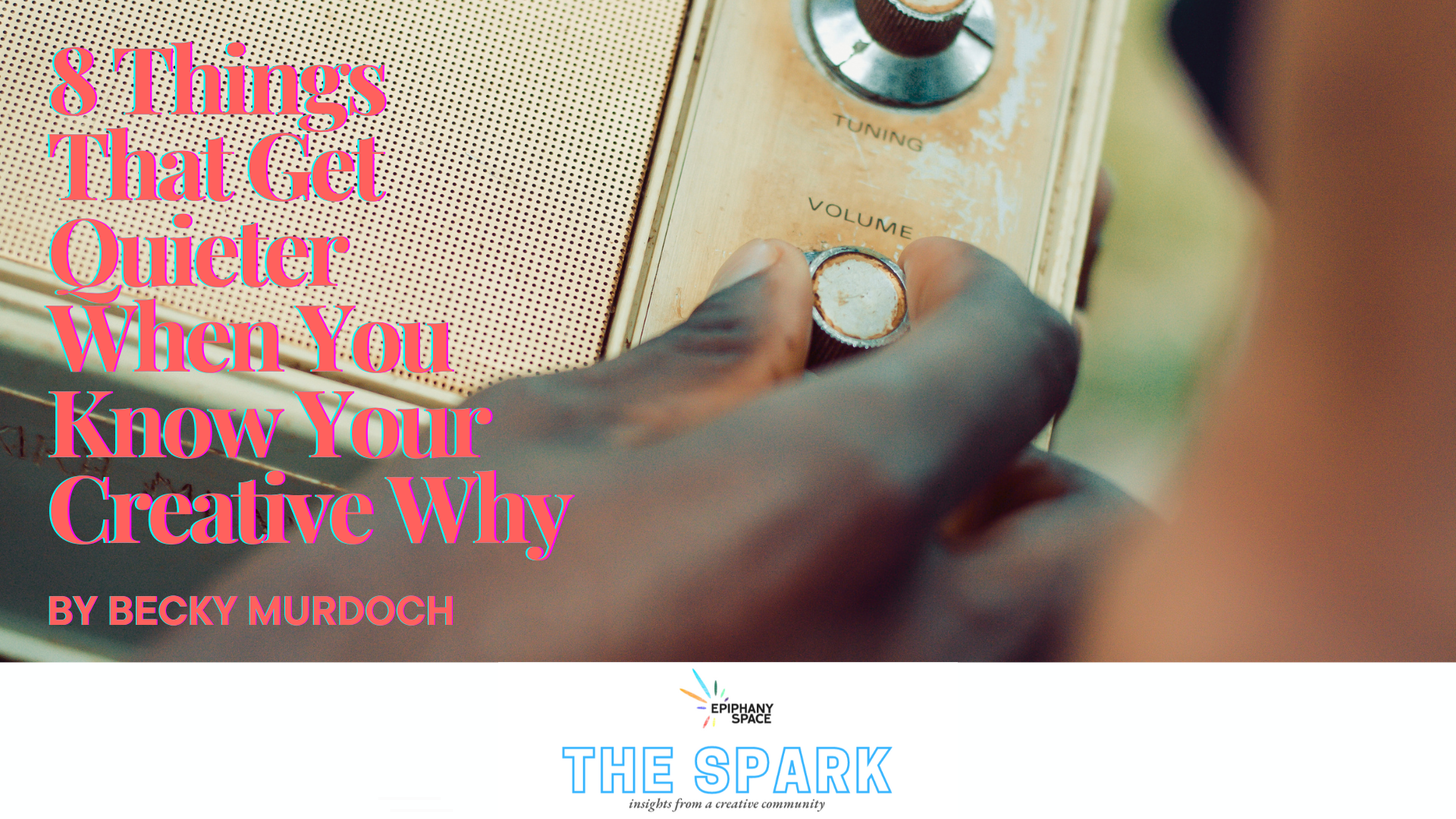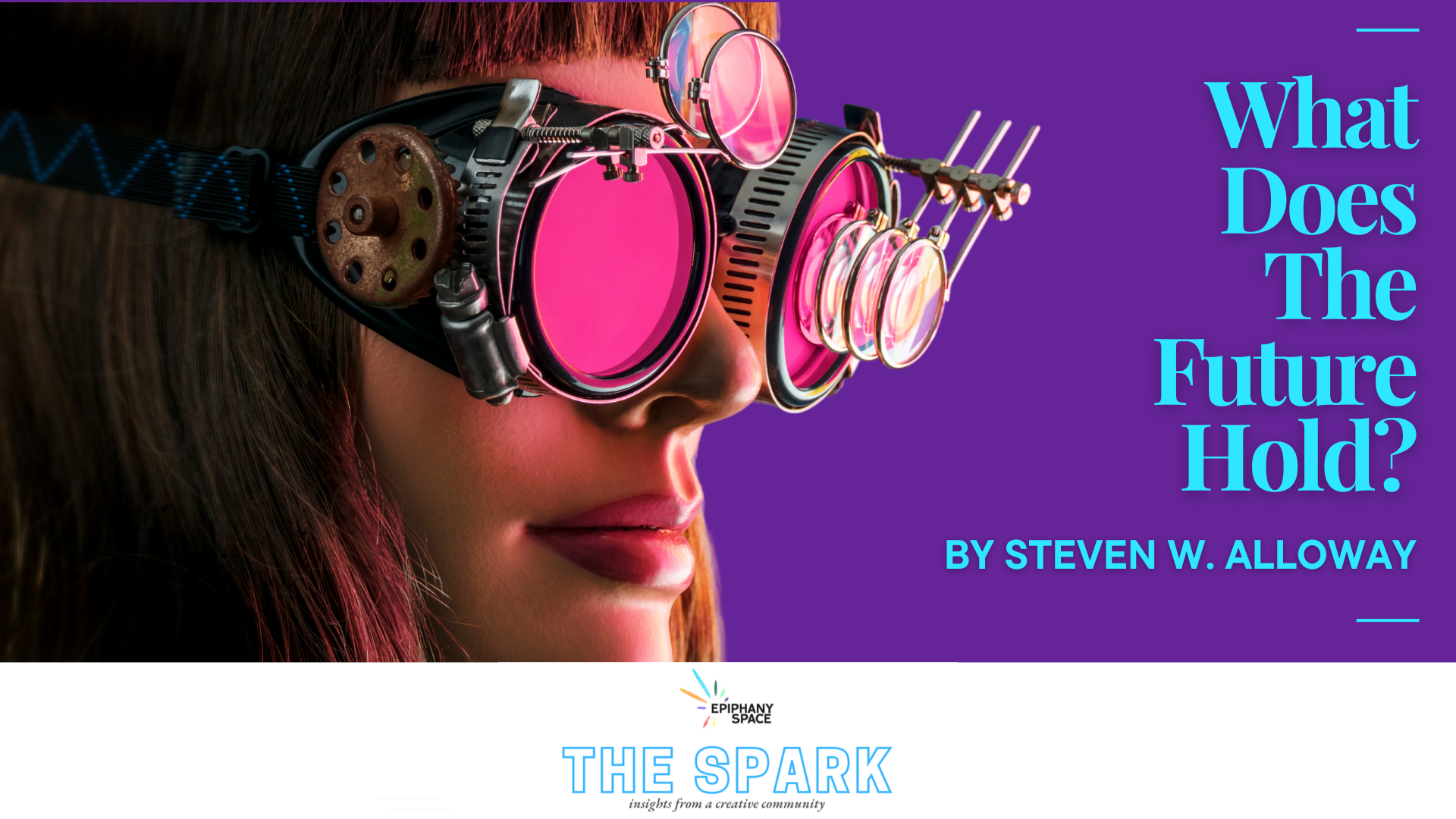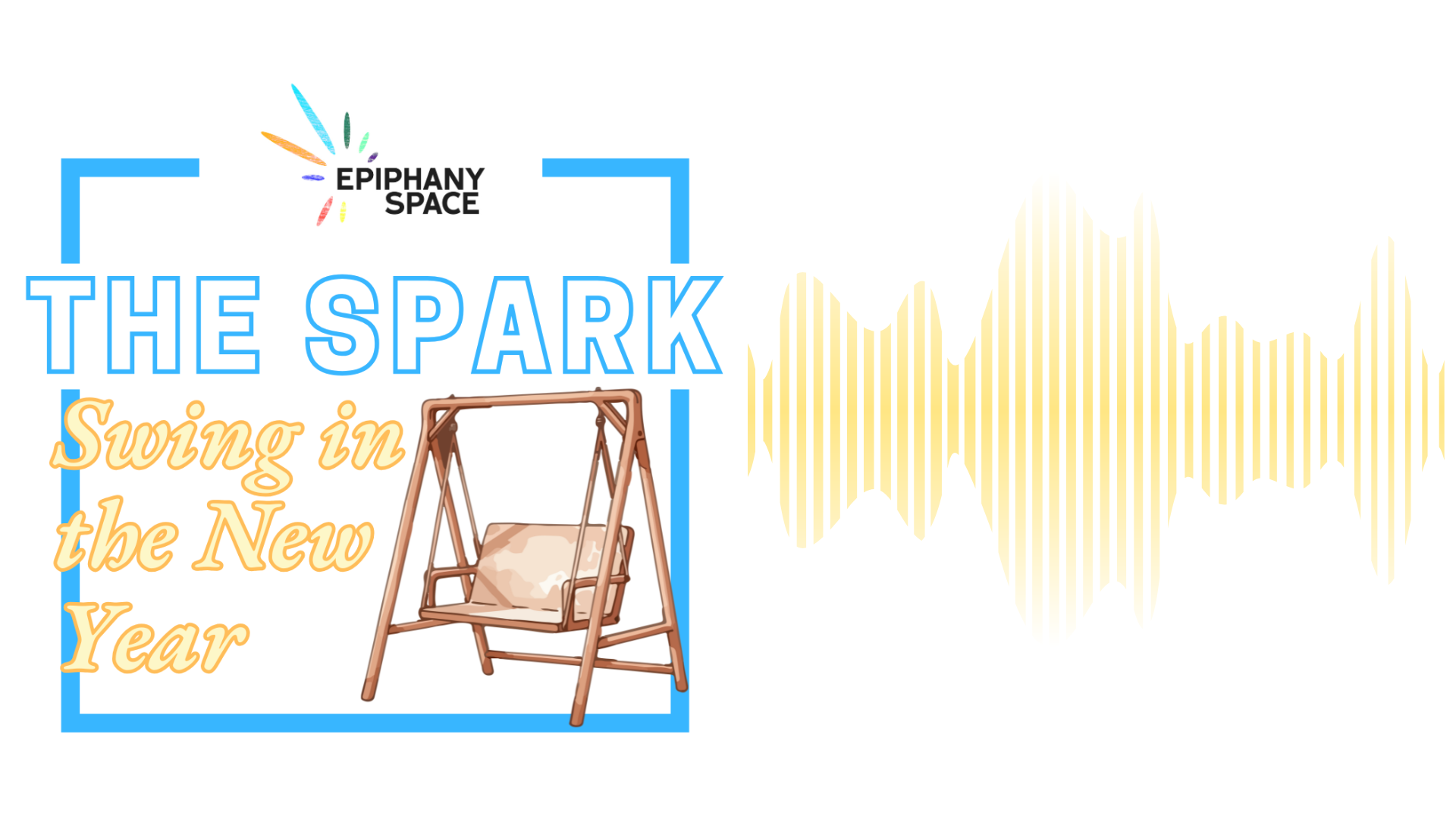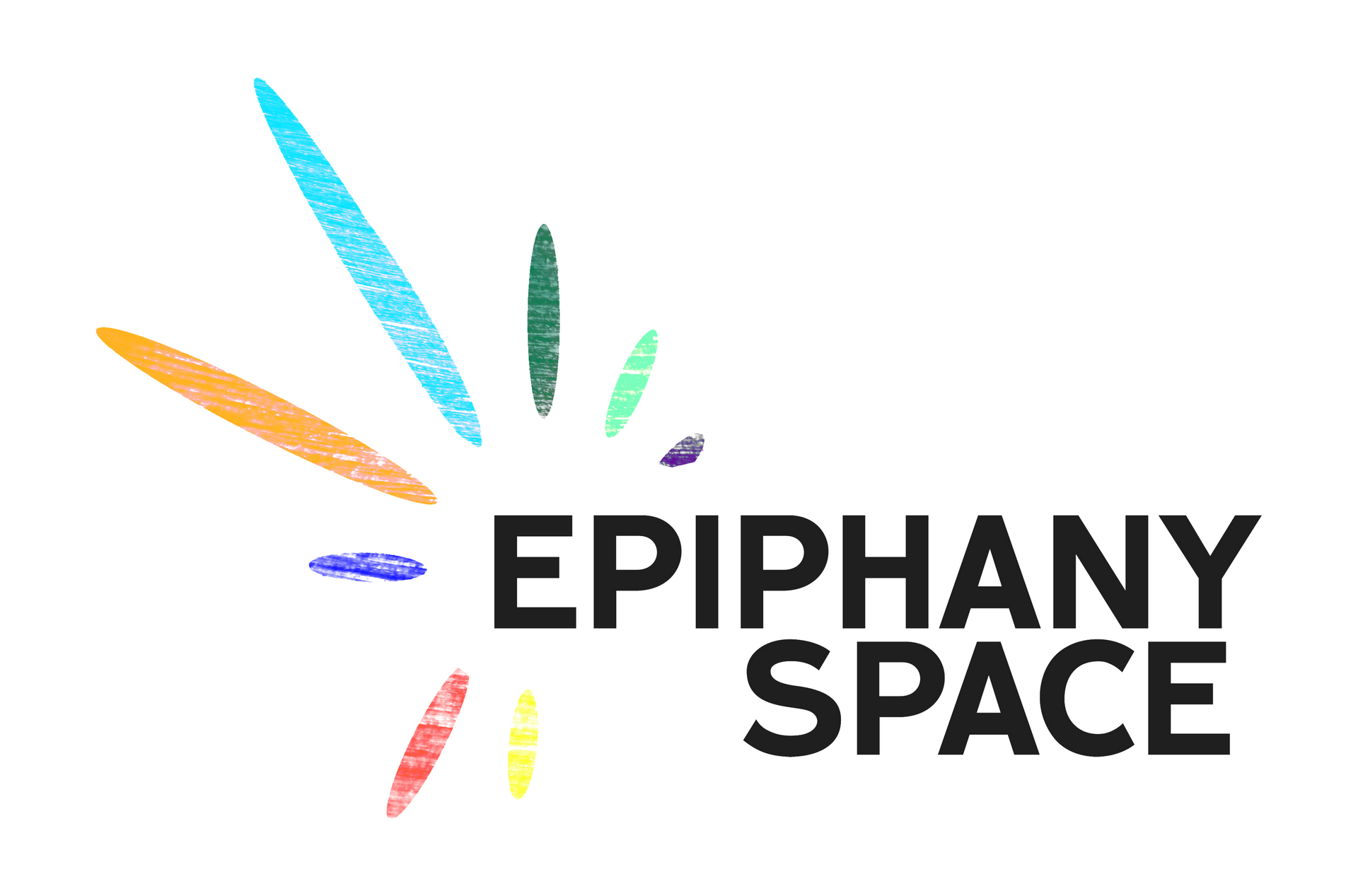Article
Paco Erhard, "I Love America, I Want to Help America". Pt. 1
Meet Comedian, author, Paco Erhard
So, Paco, tell us a bit about who you are and how you first got involved in Epiphany Space.
I’m Paco Erhardt. I’m a German stand-up comedian; I do comedy mainly about social issues - social observation in a mischievous way from a bit of an outsider’s perspective. I also do a show all about Germany called 5-Step Guide to Being German which I do at German American cultural centers and German companies around the United States. I’m also starting my own online show soon which is a twist on shows like The Daily Show, John Oliver, and Bill Maher. This will be a German perspective on America. I’m also bringing in some European comedian friends of mine with their own unique perspectives on this beautiful country.
I love America. I want to help America. I’m thinking about calling the show The Gyst spelled G-Y-S-T which is the acronym for “get your shit together”, and I will be starting that with a camera crew - a crew of people I know - quite soon.
I got involved with Epiphany Space through my dear friend Shelby who has helped me a lot. After I came to LA, he showed me some cool places, and then, at some point, I think we were walking in Hollywood and he told me, “this here on the side; that’s the coworking place I go to. It’s called Epiphany.” This was late at night so it looked like a rundown building on Gower Street. And I thought, “This is really interesting. It looks much cooler than WeWork or whatever glitzy bullshit coworking space I’ve seen. I love to meet people; I love coworking, so why don’t you introduce me sometime?”
And he did. And it was love at first sight. I’ve had a great time there ever since.
Even though now I live in Colorado, I still keep in touch. Especially with Cortney and sometimes Becky and eventually, I will probably be back in LA. Until then, I have to get involved remotely and I’ve been loving the kind of “shut up and write” sessions. And it’s always good to see everybody’s faces – Becky, Cortney, Shelby, Steve, Rice, Javier - all the lovely people at Epiphany. It’s a great place. I love it.
What prompted you to move from Germany to the United States? How did you end up in L.A.?
I’ve been doing stand-up around the world in English since 2011. In the UK, where I started out, in Australia, New Zealand, Canada, Malaysia, Singapore… all kinds of places, but ultimately the USA is the entertainment pinnacle of the world. Also, since I talk about politics and social issues and shit that matters, I couldn’t help but do a lot of American bashing or talking shit about things going wrong in America because ultimately America is simply by far the most powerful country in the world and especially in the west, so whatever happens in America ultimately affects us too. And I kind of got tired of just bitching about America [overseas] because if you want to bitch about somebody, do it to their face. And that’s what I thought I’d do, especially because I love America.
I just think America can do a lot better than it’s doing now. You know this.
Ultimately, if you have the delusion like I do that your art can affect people and maybe change some minds, then why not go to the place that you most talk about; the place you most want to get better; the place you love? Why not go to the United States? So that’s what I eventually did.
I wanted to move to New York, but before that I was going to meet a friend of mine in Los Angeles, and we were going to go to San Diego (OK… it was a woman I quite liked) and then travel to Mexico and spend some more time in LA. And as we were doing this, I realized I knew LA a lot better than New York because I had been coming here for years. I have lots more friends in LA; also friends in the entertainment industry who could maybe connect me. And also, it was December. Why was I moving to New York, exactly? And that’s when I decided that entertainment exists in LA too, and so I came to LA and I love LA.
Tell us a bit about your show, The 5-Step Guide to Being German. What was the inspiration for it? How did it come about, and how has it evolved over time?
5-Step Guide to Being German is my oldest show. It was the first solo show I ever wrote in 2011. And it is kind of my cash cow on the side. It doesn’t have much to do with my other more political stand-up. It’s a show all about what we Germans are really like and why because we are a lot more ridiculous in reality than the stupid clichés could ever be. It’s a show in which I explain different cultures to each other. I find it very interesting how we all become the way we are; and how entire countries are simply influenced by their history. Why are Americans on average positive about the future? Why do they act very quickly and have that “can-do” attitude whereas Germans tend to think a lot and try to plan everything out and try to control everything before they even move?
There are all these historical factors that play a role psychologically, and I find these things fascinating. And I love turning that kind of stuff into comedy because I think humor can transport knowledge in a much better way, especially when it comes to truths that are maybe kind of uncomfortable or when it comes to conflicts between Germans and Americans in a company, for example. That’s where I do 5-Step Guide to Being German a lot – in companies explaining Germans and Americans to each other so they go – oh, that’s why they are the way they are. I get it now.
They realize how both sides have their strengths and weaknesses and learn how to put those together in the best way. The show came about in the years before 2011. I had already worked with Brits in Spain. Brits who were not quite so educated sort of British people who had a lot of dumb stereotypes about Germans and had been trained for decades by the media to hate Germans or at least not like them. I remember that I learned to banter with that. Ultimately they didn’t mean anything by it. They had just been told all those stereotypes and were now making fun of me without really knowing anything, so I learned to banter have witty comebacks, and be self-deprecating. They loved that, and I did that for years - forming the humor I already had in a little bit more British, darker, sometimes more confrontational, and a little self-deprecating way. However, that got really tedious at some point because you can only do the banter for so long. You can only hear about Germans goose-stepping and not having a sense of humor and all that dumb shit for so long. Eventually, you get tired of it.
At some point, I remember telling this guy, “Dude that’s not what we Germans are really like, you know? That’s just dumb. That’s not what we’re really like.” And he said, “OK. So what are you Germans really like?” And I realized that I didn’t have a clue what we were really like. Especially when you’re living in it, how do you describe what somebody is like? And I realized that all of us – Americans, Brits, Italians – whatever – are so used to doing what we do that we don’t even know what we do. We don’t know what we are like. So that was the starting point for me looking into what we are really like. I went into libraries and did years of psychological and historical research and lots of soul-searching to start to understand myself and my people, how we are different from others how we see ourselves versus how others see us, and what is behind those stereotypes. To what degree are they true? To what degree are they false? Where did they come from? What happened in 1618 that still influences us to this day? And from Spain, I moved to London and started doing real stand-up comedy there.
For the Edinburgh Fringe Festival 2011, being the largest performance festival in the world, I started writing this show –5 Step Guide to Being German - where I put together jokes around the many things I had learned through my research. And that show was my breakthrough. It was extremely successful and I was asked whether I wanted to do the same show in Australia. Then offers came from elsewhere and I did it in Edinburgh again because I wasn’t quite happy with the show yet. And it was insane how oversold my shows were.
It’s kind of been my cash cow ever since. I occasionally get tired of it, but I just do some new research and I get fascinated again or I do more research about Americans. Since I'm not talking to Brits or Australians anymore, it’s important that I know why Americans on average are the way they are. What influences their psyche on a national level? And then I change the show a little bit.
And also then I have hundreds of people watching it at a cultural center and giving me their money and I quite enjoy that. And of course, doing this for companies and having the feeling that this helps people, can resolve conflict, and makes some peoples’ work life easier… that’s also just a really good feeling.
How has it evolved?
Well, like I said, going back into the topic again and again, makes me better and better about knowing my stuff. Wherever I go, I research the country I’m going to and the people I meet there, so I don’t only understand why WE are the way we are. It’s also fascinating to understand how others could not have really developed any differently than they
did given the history and influences that they’ve had. Catastrophes like war, famine, and being sent somewhere far away as prisoners will influence people and they will pass on their mindset to the children. We still follow rules and have values and best practices that made sense 200 years ago. They don’t really work anymore but there’s a lot of inertia in this and so they are still in us somehow.
So getting to know country after country, my horizon has broadened to the general question of how we are influenced and hardwired without knowing it. It’s fascinating how the vast majority of people don’t realize how they operate culturally - what is not their feelings and values but has been put into them by their culture.
Another evolution that I remember was when I first did the show in Australia and not in Britain anymore. It turns out Australians really like us Germans and we’re not used to that, so this was new to me. The show when I did it in Britain was quite confrontational, calling Brits out on their bullshit, on their shortcomings, on their hypocrisies. And I think there was a big element of a grudge against all the insults, the banter, and the dumb ignorant comments I had experienced for almost a decade at that point. So there was an element of bad blood in my comedy and doing the show in a country where I felt much more welcomed for being where I was from was very different suddenly, so I think it made me a better comedian because I was not so influenced by the insults anymore. I wasn’t so primed to seek confrontation. I could focus more on what I was talking about. That is a distinct memory I have that I felt all of this has really just been a step for me. Bringing it to New Zealand, Canada, America, and so on also has broadened my spectrum on how different audiences are wherever you go, but that is more of a general evolution of my comedy and my understanding of what I do guide and less to do with 5 Step Guide to Being German.
Connect with Paco Erhard
Instagram: @pacoerhard




